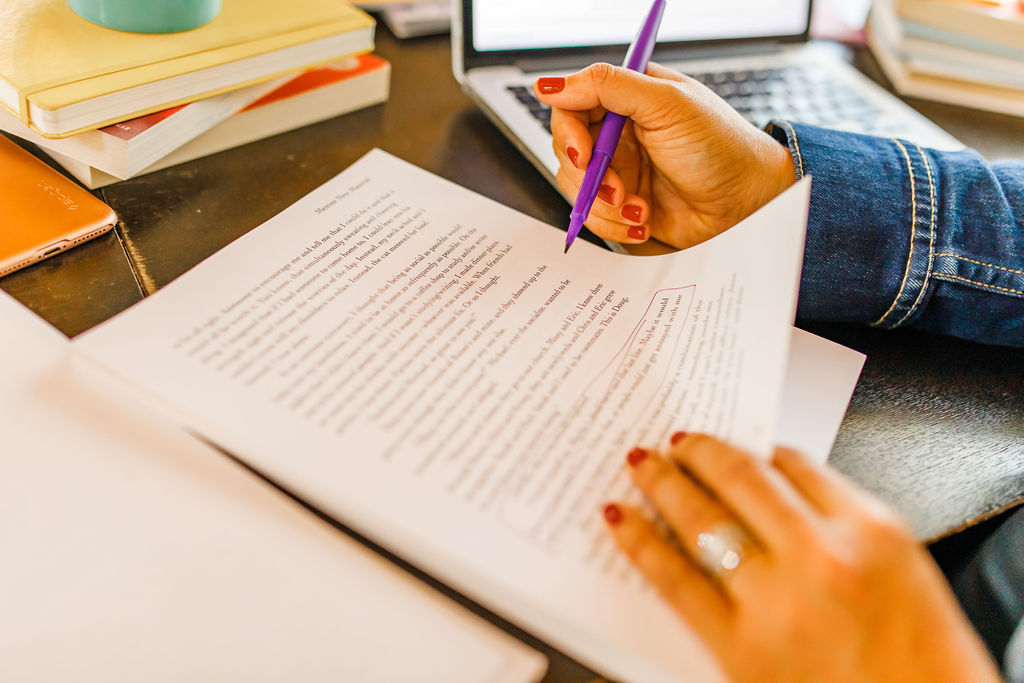Over the weekend my business partner Karen and I hosted Eula Biss for a craft seminar that she gave for our clients. If you don’t know Eula Biss, she’s a giant in the literary and writing community—she’s an essayist and an author who has written several New York Times best sellers. Her most recent book is called Having and Being Had, but it was her previous book, On Immunity, that introduced me to the beauty of her prose and the complexity of her thinking.
Eula shared with us much about her own writing process, reminding us that it’s okay if things are messy and that the emotional slump of feeling like we’ll never figure it out is normal—it’s so normal, in fact, that the length of the slump she experiences is in direct proportion to the length of the piece she’s working on. In other words, the slump lasts longer when it’s a book.
There were fifteen of us in this seminar and we all left feeling bolstered for our own book projects and, I think, a bit relieved. Relieved to know that someone as successful and established as Eula Biss also experiences many of the same things that we experience.
I for one felt incredibly validated.
Nonfiction Bootcamp, my coaching and editing program for women writing books about their personal story, focus primarily on process. Yes, we discuss craft, and there is editorial feedback. But most of the curriculum focuses on creative process because in all my years of work as a writer and editor I have found that process is the thing that writers think about the least.
Their process is:
- Vague
- Chaotic
- Inconsistent
- Uncertain
- Unpredictable
- Non-existent or, worst of all,
- Invisible and completely unknown to them.
Raise your hand if you resonate with that.
And what Eula told us over the weekend is that the better you know your process the more at ease you can be with the chaos and, yes, even the inefficiency.
Because you know that you’ll get through it. Because you know that the only way is through.
I tell my clients this all the time. It’s why we focus so much on goals, schedule, rituals, mindset, and creativity, among other things—these practices ground us in our own intuition and, eventually, slowly, over time, we learn to trust ourselves because we trust our process.
Trusting yourself is so hugely essential to a creative life.
It means you can stop comparing yourself to what everyone else says is the best or only way to do things.
You can stop worrying that you’re not doing something right. Or you’re doing something wrong. Or you’re missing some essential key that will unlock the magic—NO. The MAGIC IS IN YOU.
It means you can stop trying to be someone other than yourself. You can put your head down, do your work, and not worry about what anyone else is doing.
This is the best and easiest way to make the progress you want to make on any creative project: to ignore everyone and just work.
Sometimes you need a little help ignoring everyone, and that’s why I’m here. To remind you. And to let you know that sometimes you can choose one person, like a coach or an editor, who you allow to be your guide, but then you seriously ignore everyone except that one person.
And remember, there is no shame in needing help—especially if it is someone who sees things in you that you can’t see in yourself, who reminds you that you have everything you need to accomplish your goals, and who gives you permission to trust yourself.
Officially, here’s your permission: Trust your process and trust yourself.

